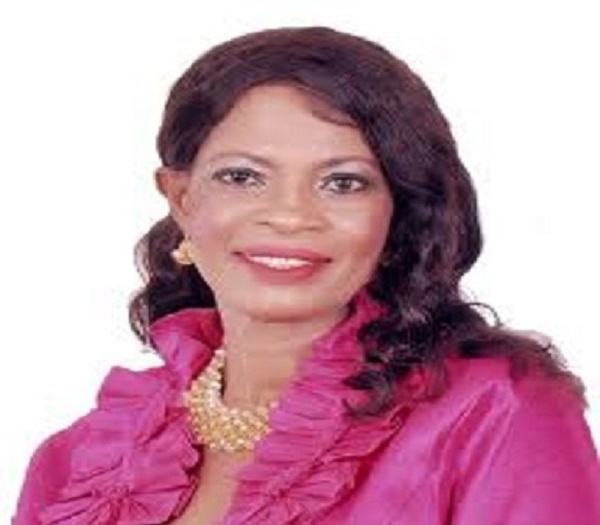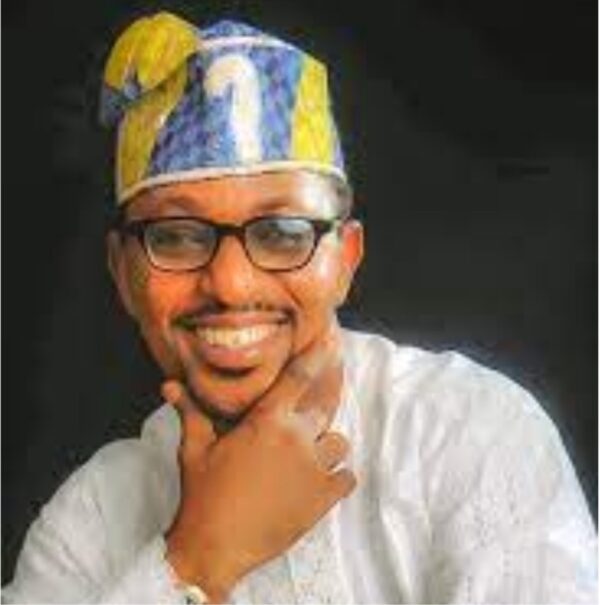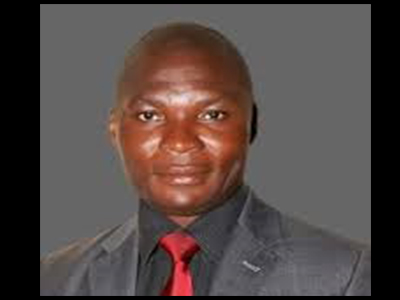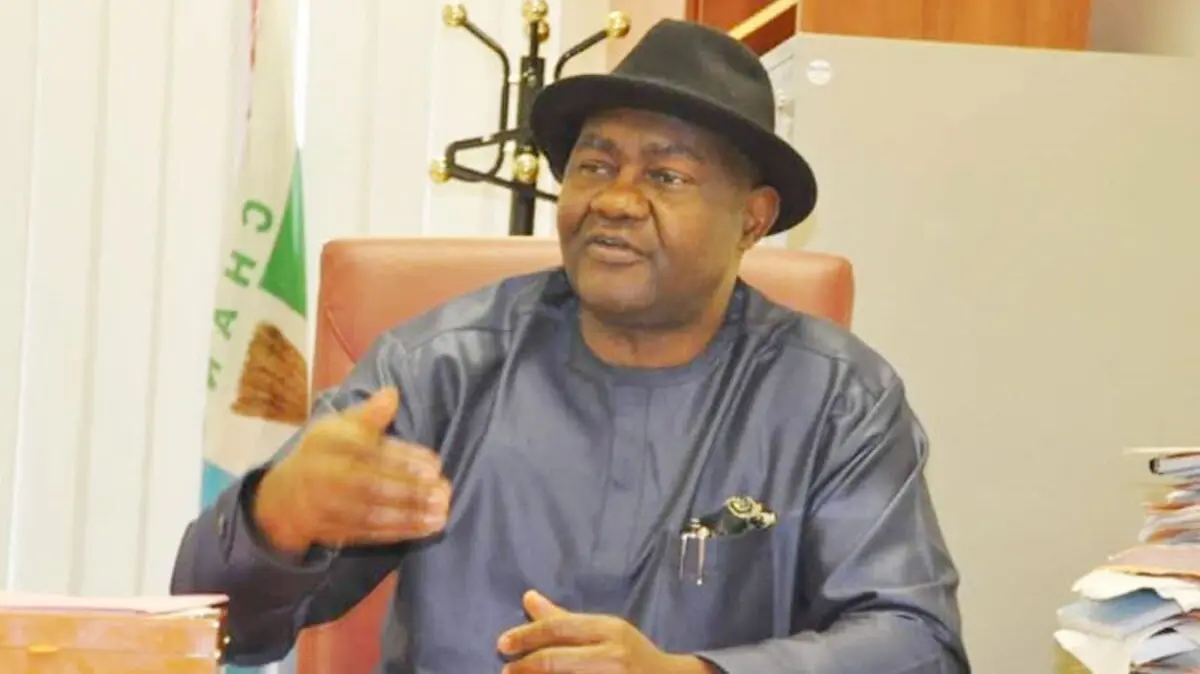There’s Nowhere In The World The Currency Is Allowed To Float Freely- Johnson Chukwu
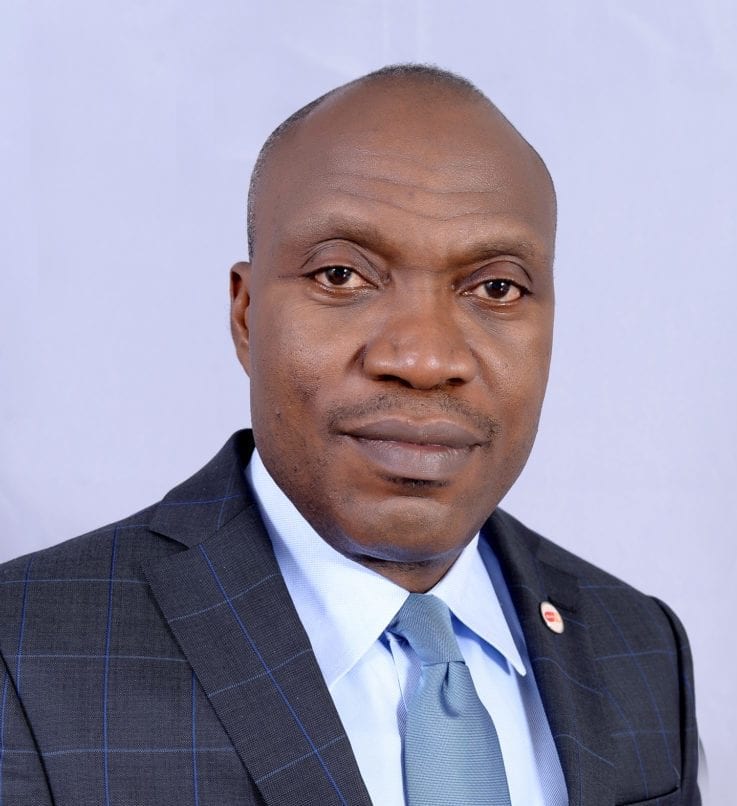
Johnson Chukwu, Founder and Group Chief Executive Officer, Cowry Asset Management Limited in this interview with Arise TV monitored by MMS Plus described the Naira floatation policy by the Federal Government as a wrong one as there’s nowhere in the world where the currency is allowed to float freely.
He also disclosed that the Willing Buyer, Willing Seller policy is still not practicable until such a time when the country can boast of diversified sources of foreign exchange earnings from multiple export products and the banks are the recipients of the export earnings. Excerpts.
What Do You Make Of The Various Pronouncements By The President On The Currency, Economy?
The president has made two announcements that have excited the market. The first was the removal of fuel subsidy and the second was the harmonization of the exchange rates.
The market was quite excited when those announcements were made. Of course, the announcement was one leg of the issue which was why the market recorded some gains in the first two days and began to decline for the rest of the week.
Aside from the excitement of the announcement which were significant policy shift in the economic space, the major work is in ensuring that these policies have salutary effects on the economy and that the intended purpose of these policies are achieved.
It is not just enough that we have harmonized the exchange rates, a couple of things still need to be done, we need to address the issue of supply, it is very critical to make so that you have stability in your exchange rates.
This is why the market after the excitement of the announcement is quickly settling in to the reality on ground of the weaknesses around the economy and what the new government needs to do to ensure that this policy does not lead to some dislocation in the economy and whatever dislocation that can set in with this policy are actually addressed and that ultimately, we achieve the intended objective of the liberalization of the foreign exchange market as well as liberalizing the downstream oil and gas sector.
Who Are The Net Buyers In The Equity Side Of The Market This Week? Local Or Foreign Investors? What Did You See?
In the meantime, and foreseeable future, the market participants or trader in the major traders in the market will remain the local investors. The simple reason is that, apart from the announcement, the next thing that we need to do is the funding of the market. The Central Bank of Nigeria will remain the market maker in the forex market because the CBN will continue to receive a huge chunk of our foreign exchange earnings.
The structure in our revenue earnings is not likely going to shift in the next few months, so, what will happen is that people are also conscious of the fact that look, the CBN must have the wherewithal to meet the arrears of unmet demands in the market.
Some of those arrears are due to foreign portfolios investor to receive after they must have sold their Naira assets, and until liquidity is provided in the foreign exchange market and they can access funding at the new exchange rates, you should not expect a deluge of foreign investors in the market.
So, what is happening is that, in the meantime, the local investors are taking the centerstage with the hope that in the nearest future, foreign investors would come, but as at now we still don’t have the foreign investors.
The current foreign investors will still want to exit the market after throwing down their portfolios and still trying to access FX in the market.
Once that is done and we see what I may call a show of strength by the CBN that they have the financial muscle, the war chest to meet demands, then, foreign investors would want to come because no one wants to come and get trapped in the market.
In as much as we have a liberalized foreign exchange market, we must have enough supply to clear demand.
But, The CBN Is Not Intervening In The I&E Window Anymore?
While that is the desired destination, that is not where we are today. Where we are is that the CBN still remains the market maker in the foreign exchange market. The willing buyer, willing seller window has been created, we are going to see a trickling of capital flow into the economy from private investors, from Nigerians in the diaspora, but it will remain a trickle for some time.
The key thing that you have to look at is this, what are the major sources of foreign exchange cash flow into the economy, it is largely from the sales of Crude and Liquefied Natural Gas (LNG).
Both products account for about 90 per cent of our foreign exchange earnings and the CBN is the recipient of this cash inflow from the sale of crude.
This means that the CBN will remain the market maker as of now.
Until the time we get to the point of having diversified sources of foreign exchange earnings when we have multiple export products and the banks are the recipients of the export earnings, that is only the time we can have a willing buyer, willing seller and it will be such that you have a near perfect market.
But today, you are not going to have a near-perfect market because we have a duopoly, or at best a monopolistic market where the CBN is the key market maker.
So, until then, the CBN will remain the sole determinant of the exchange rate.
Beyond that, elsewhere in the world, Central Banks are always reserve banks, this means that the Central Bank is the lender of last resort, the one who defends the currency.
There is nowhere in the world where the currency floats freely, everywhere in the world, the central banks will weigh in into the market to stabilize the exchange rate within a particular bracket.
It is either they are selling to ensure that the currency does not strengthen too much or they are buying to ensure that it does not weaken too much.
And that is the role that we expect the CBN to play in the nearest future. Currency management is the core role of the Central Banks around the world.
What Next As This Initial Knee-Jerk Rallying Of The Market Is Fading Out?
I wouldn’t say it is a knee-jerk rally, I saw the excitement in the market, and some of the heavy lifting expected of any new government has been done, the way it was done is debatable. Whether be the policy of deregulating the foreign exchange market, eliminating multiple exchange rates, or removing the economic rein that has been embedded in the forex market, we all agree that it is the right policy, there is almost a uniformity of opinion that this was the right thing to do, this was why you saw that excitement.
The deregulating of the downstream sector was also something that we expected, so, those two actions created excitement, what happens is that after the excitement, the details have to be worked out.
And people are looking forward to those details. One, does the CBN have the reserve to in the first instance clear arrears of unmet demands?
Two, does the CBN have the reserve to ensure that there is stability in the market irrespective of the price. There must be stability, no currency wants to trade in a gyrating, wide band, because when you do that, you create uncertainty around the market and people might not want to come into that market, so, what people did after the excitement was that let’s listen to the details, do they have the wherewithal, do they have the war chest, at what range will the foreign exchange trade? This is the band that the CBN has defined, how does it want to intervene in the market?
All these factors are what the market is watching out for, this was why the market, after the initial excitement has actually seen some dampening while watching for the details.
What Is The President Trying To Achieve With The Appointment Of Special Advisers?
He is sending a message that he is going to focus a lot more on the economy, energy, and monetary policy which I think is a misnomer.
You can’t have an adviser on monetary policy, you can have one on fiscal policy but the monetary policy is the exclusivity of the CBN.
Those areas he has appointed Special Advisers for me is super-imposing where he wants to focus on which also shows that the emphasis will be on the economy.
Of course, we all know that the economy is one area that we have a big challenge, many of the challenges that we are facing as a country are partly related to the economy.
So, if you fix the economy, a lot of things will fall into place and I think he is sending a message that I have selected a group of very vibrant, intelligent people who I want to seek their opinion in taking decisions in these areas of Nigeria’s economic and social life.
What Do You Think His Cabinet Would Look Like?
It is still left for speculation. I spoke to some people close to those who have been appointed as Special Advisers and the opinion is that these people are worth their salt.
If this is a barometer to begin to hazard a guess into the quality of people that will populate the cabinet; the executive council, then one would say that we should expect good hands to be appointed to those key functions.
But, the key thing for me is that we have a huge job to do. The economy is in a strait and at this time, we should have an Economic Management Team which will largely be constituted when you have the cabinet in place.
There should be what I call collective wisdom, some of these policies that were announced should have been thoroughly debated so that measures are put in place to ensure that the negative effect or implications or fallout of these policies are nipped in the bud.
Because we don’t have Economic Management Team in place, I don’t think a lot of thoroughness has gone into the details of the implementation.
This is the doubt that people like me have because, while some of the announcements that were made were made with good intentions, they could have been managed in such a way that the negative impact does not outweigh the benefits.
In the long run, the policies announced will ensure that we reposition the economy of the country for growth, but, they have social impacts and we must know these impacts.
For instance, our economy has now been fully or largely integrated with the global economy. So, whatever happens in the global economy will reverberate in the Nigerian economy unlike when we had circuit breakers.
Circuit breakers in the sense that our foreign exchange was not market reflective, if there is a shift in our reserve, we don’t feel it, our oil and gas was not market reflective, so, if there is an increase in global oil price, we don’t feel it unlike what happens elsewhere in the world where an increase in crude prices affect energy cost globally.
So, what we are going to see going forward is that if there is a one per cent increase in the price of crude, it will have a ripple effect in the price of petrol, so, that increase will affect every average Nigerian household.
Unfortunately, we don’t have the social safety net that could cushion the impact of that increase, these are some of the details that we need to work out so that when there is gyration in the global economic environment, the safety net kicks in to protect the vulnerable in the society.
Let’s Talk About The FX Liberalization Move, What Are The Impact?
One of the things about the floatation is that beyond the reasons I earlier spoke about that we must have a reserve to ensure that the currency trades within a particular band is that, one, we have eliminated one of the sources of economic rent and criminal engagement in the country which is selling FX at a price that was sub-market price and creating an uneven playing grounds for businesses, this has effectively kept away genuine investors. So, we are happy that has been done.
What will be the impact of this on the investment climate? We are going to have a more level playing ground so that anybody who wants to invest will be doing so based on efficiency, competence and effectiveness. It is no longer a case of when you come to the market and invest at N750/$1 and another person is investing at N450/$1.
There is no way you can compete with such a person. If you bring in products at such varying prices, there is no way you can compete, So, we are going to have an even playing field and that would ensure that genuine people/investors come into the country including local investors.
If you have more investment, you will have more productivity and when you have more productivity you will have more activity at The Exchange because quoted companies will be more productive, earn more income and invest.
So, all these things will have multiplying effects because revenue to the three tiers of government will increase.



